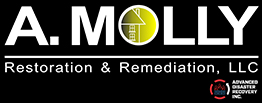 As the Novel Coronavirus, COVID-19 spreads accross the globe, many questions are emerging about what it is and what can be done to try to prevent it from spreading. Below please find FAQ’s that may help you get better prepared:
As the Novel Coronavirus, COVID-19 spreads accross the globe, many questions are emerging about what it is and what can be done to try to prevent it from spreading. Below please find FAQ’s that may help you get better prepared:
What is Corona Virus, COVID-19?
Corona Virus is an umbrella term that is used for many types of viruses. There are many types of human coronaviruses including some that commonly cause mild upper-respiratory tract illnesses. Corona Virus, also known as COVID-19 is a new disease, cased by a novel (aka new) coronavirus that has not previously been seen in humans. The new name of this disease is Coronavirus 2019. Abbreviated as COVID-19.
How Does It Spread?
Current understanding about how the virus that causes coronavirus disease 2019 (COVID-19) spreads is largely based on what is known about similar coronaviruses. The virus is mainly thought to spread from person to person. This is between people who are in close contact with one another and also through respiratory droplets that are produced when an infected person coughs or sneezes. It may also be possible that a person can get COVID-19 by touching a surface or object that has the virus on it and then by touching their own mouth, nose or possibly their eyes.
What Are the Symptoms?
According to the CDC, the symptoms have ranged from mild symptoms to severe illness and death for confirmed coronavirus disease, COVID-19 cases. Symptoms may appear 2-14 days after exposure and include Fever, Cough, Shortness of breath
How Can I Prevent Contracting COVID-19?
There is currently no vaccine to prevent coronavirus disease 2019 (COVID-19). The best way to prevent illness is to avoid being exposed to this virus. However, as a reminder, CDC always recommends everyday preventive actions to help prevent the spread of respiratory diseases, including:
- Avoid close contact with people who are sick.
- Avoid touching your eyes, nose, and mouth.
- Stay home when you are sick.
- Cover your cough or sneeze with a tissue, then throw the tissue in the trash.
- Clean and disinfect frequently touched objects and surfaces using a regular household cleaning spray or wipe.
- If you haven’t washed your hands, don’t touch your eyes, nose or mouth
- Wash your hands often with soap and water for at least 20 seconds, especially after going to the bathroom; before eating; and after blowing your nose, coughing, or sneezing.
- If soap and water are not readily available, use an alcohol-based hand sanitizer with at least 60% alcohol. Always wash hands with soap and water if hands are visibly dirty.
- If you haven’t washed your hands, don’t touch your eyes, nose or mouth
Should You Be Concerned?
As per the CDC, for the general American public who are unlikely to be exposed to this virus at this time, the immediate health risk from COVID-19 is considered low. However, you should be sure to pay attention to your local news stations to stay up-to-date on the most recent occurrences.
The following are at a more elevated risk:
- People in communities where ongoing community spread with the virus that causes COVID-19 has been reported are at elevated risks. However, these still have a relatively low risk of exposure.
- Healthcare workers caring for patients with COVID-19 are at elevated risk of exposure.
- Close contacts of persons with COVID-19 also are at elevated risk of exposure.
- Travelers returning from affected international locationswhere community spread is occurring also are at elevated risk of exposure.
Contact A.Molly for the sanitization of properties
If you are affected by viruses like the 2019 Novel Coronavirus or COVID-19 or influenza, our team of cleaning experts will be well prepared to respond quickly and properly to disinfect structures and services for both residential and commercial properties. We are certified in providing the most modern and efficient methods for sanitizing properties to help stop the spread of viruses. Call us for more information.




























